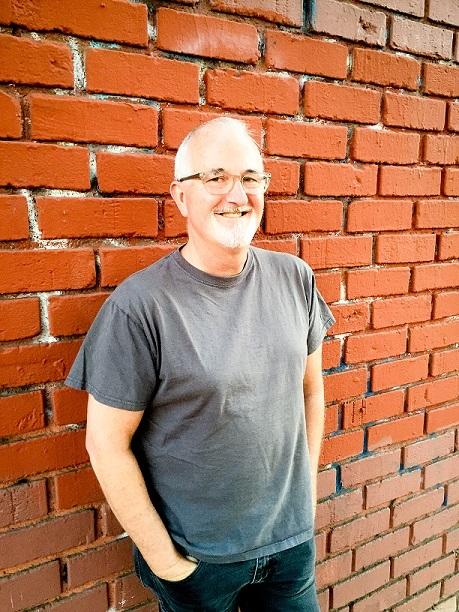
If food waste was a country, it would emit more CO2 than all the countries in the world except China and the U.S. “Wasting food is a tragedy, but the real tragedy is that we’re wasting people,” says Robert Egger, a genius with a vision.
Who are the people being wasted? Older people released from prison who can’t get a job and young people emerging from the foster care system who are statistically headed to the streets or prison.
Egger decided to tackle all of these issues at once, so he took food waste and created a culinary school to teach felons and foster kids how to cook. Once the culinary students graduate, they are hired by restaurants or social enterprises.
It’s a brilliantly simple plan. The first step was to create a nonprofit and a social enterprise in Los Angeles. Here’s the story of how this innovative philanthropic business model works.
The nonprofit: LA Kitchen
The LA Kitchen is a 20,000-square-foot food processing hub that accepts donated food. It works with local farmers and produce wholesale companies to gather fruits and vegetables that will not be sold due to cosmetic issues or lack of demand. In the U.S. 40 percent of edible food goes to waste, and 50 percent of that is healthy fruits and veggies. Bent, bruised, broken, wrinkled, over- or under-ripe fruits and veggies don’t ever find a home. They get discarded.
Egger told us he spoke to a fruit seller earlier in the day, who offered to give him pallets and pallets of pineapples for free. The pineapples were perfectly ripe and ready to be eaten that day. The problem was that no one would buy them. People don’t want to buy what they have to eat today; they want to buy something they can eat in three to five days.
Social programs send the LA Kitchen two types of people: youth who have been recently released from foster care and seniors who were recently incarcerated. This is an especially amazing opportunity for the recently incarcerated since the three things that make it especially hard to get a job are: lack of job skills, old age and a criminal record.
California Proposition 47 states that older prisoners can be released early. On the surface it sounds compassionate, but some speculate the real reason is that the government doesn’t want to pay for the prisoners’ healthcare as they age. Often these people have been imprisoned since they were 15 years old. Sadly, these men and women can’t find jobs, so they end up on the streets. Enter the LA Kitchen, giver of second chances.
The social programs that partner with the LA Kitchen vet the potential students to make sure they are ready to enroll and learn culinary skills. The mix of young and senior students is intentional. Egger says hopefully the older students will tell the younger ones, “I’m not going to let you make the same mistakes I did. I’m going to work with you, and we’re going to do this together.”
Once the students learn cooking skills, they will manage the volunteers who come to help transform fruits and veggies into nutritious meals. Egger created a similar nonprofit in Washington, D.C. called DC Central Kitchen. Presidents Obama and Clinton have both volunteered there.
Egger says when you put a president in a kitchen beside someone imprisoned for decades and task them with cooking for 5,000 people, at some point the president suddenly turns to the felon and asks, “Am I doing this the right way?” And the felon replies, “No sir, you do it this way.” And in that moment, that person who was formerly incarcerated can feel extremely proud of his skill-set and the knowledge he has gained.
“That’s the power of food," Egger says. "Every morsel of food should be tied to empowerment, inclusion and uplifting, not just giving people free food.”
Volunteers and culinary students will chop, freeze, refrigerate and cook donated food that is about to expire (like the pallets of pineapple). The goal is to “take time and temperature out of the equation,” so the food will stay fresh. LA Kitchen will reclaim a million pounds of produce within its first year and serve up 990,000 meals, snacks and products.
The nutritious meals will then be distributed for free to social service agencies in Los Angeles, including after-school programs, drug rehab centers and empowerment programs for the homeless. The main emphasis, however, will be on the older population who Egger says will soon be the poorest segment of society. “Whoever is at the bottom is who we serve,” he says. “A balanced diet is one where both rich and poor have equal access to healthy food.”
Ironically, food is not what people hunger for the most, Egger tells us: “The deepest hunger across the U.S. is to be part of something bigger than ourselves.” People want to do something good with their lives. This model is brilliant because it not only feeds physical hunger, but it also feeds the students and volunteers’ emotional hunger for purpose and meaning in life.
The LA Kitchen is not just a kitchen in LA. It is the kitchen of LA. It represents all of LA in that it supports and uplifts people of all ages and from all walks of life. Egger says, “Everyone has a role. Everyone has something to contribute. Everyone has a gift.”
Egger hopes to make the LA Kitchen even better than the DC Central Kitchen due to the abundance of produce grown in California as well as the largest elderly client population.
Improving on the DC Central Kitchen is saying a lot. In the past 25 years there, 1,000 men and women have earned jobs that keep them out of prison and off the streets and produced over 30 million meals. About 60 programs in other cities and 40 school-based kitchens emulated the model based on open-source knowledge. The 100th culinary class recently graduated from the DC Kitchen. (This is the part where you give a standing ovation.)
The social enterprise: Strong Food
In addition to the nonprofit, Egger also created a social enterprise called Strong Food. It is a for-profit subsidiary that will hire graduates of the LA Kitchen’s culinary program. The business will compete for foodservice contracts and create wholesale and retail products. It’s an innovative, robust model that will be self-sustaining once funded and operational.
Strong Food will use purchased product and compete with other companies for senior meal contracts with the city and county. It may also strike deals with local hospitals, universities and other entities. For example, Egger told us he just received information about a potential prison contract, which would pay for a million pounds of food per year of cut produce for the prison system.
“I don’t like participating in the system, but at the same time I’m intrigued by the idea of felons sending local healthy food back to other felons.” He feels it might be a good way for those in prison to hear about Strong Food and the LA Kitchen, so when they are released they know a place that can help them.
You be the judge. If you were a senior, hospital patient, university student or incarcerated prisoner, which meal would you rather eat? The frozen dinner on the left or the beautiful, colorful and nutritious meal on the right? I think Egger is on to something.
Although Strong Food will compete for a variety of contracts, the emphasis will be on winning contracts for senior citizens because they are the ones who will soon have the greatest need for inexpensive nutritious food, Egger says. Nearly 80 million baby boomers are headed into retirement, and most don’t have enough money saved.
“What you see is a frightening number of people who will be old and poor. Every single morning in America, 10,000 people turn 68. They don’t have enough money in the bank for the extra 10 years science is going to give them.” They will soon be the poorest people in the U.S. Already, 450,000 Los Angeles seniors are living below the poverty line.
The new era of philanthropy
The nonprofit LA Kitchen and social enterprise Strong Food form a robust new form of philanthropy. In Egger’s words: “It’s a cool rockin’ badass machine of love” that makes amazing things happen every single day.
Social enterprise is a business model that is becoming quite popular. Young people in particular are deciding they don’t want to choose between making money and doing good.
“They don’t want to have to decide whether to work for a .com or .org," Egger says. "They want to blend everything. The idea for them is that philanthropy is how you make your money AND how you spend your money. It’s your life. It’s not just a check you write at the end of the year.”
This is the reason millennials are pounding on the doors of socially-conscious companies like Strong Food, wanting to join them so they have work with meaning. It’s also why they want to buy from socially-conscious companies as consumers. Their careers and purchases can be ways they create social justice and make the world a more beautiful place.
Egger believes in what he calls, “relentless incrementalism -- this idea of never stopping.”
“Some days big strides, some days small, but never stopping.” Saying to yourself, “‘I’m not going to stop, I’m going to keep moving forward.’ Badass movement all the time.”
“Every time a person stands out and acts up against injustice, they send forth a small ripple of hope that can turn into waves and wash down the mightiest walls of oppression.”
Image credits: 1-4 & 6-7 - The LA Kitchen; 5 - Renee Farris

Renee is a social impact strategist who works with companies to help them focus on key social and environmental opportunities. She loves connecting with people so feel free to contact her at renee.a.farris@gmail.com.














